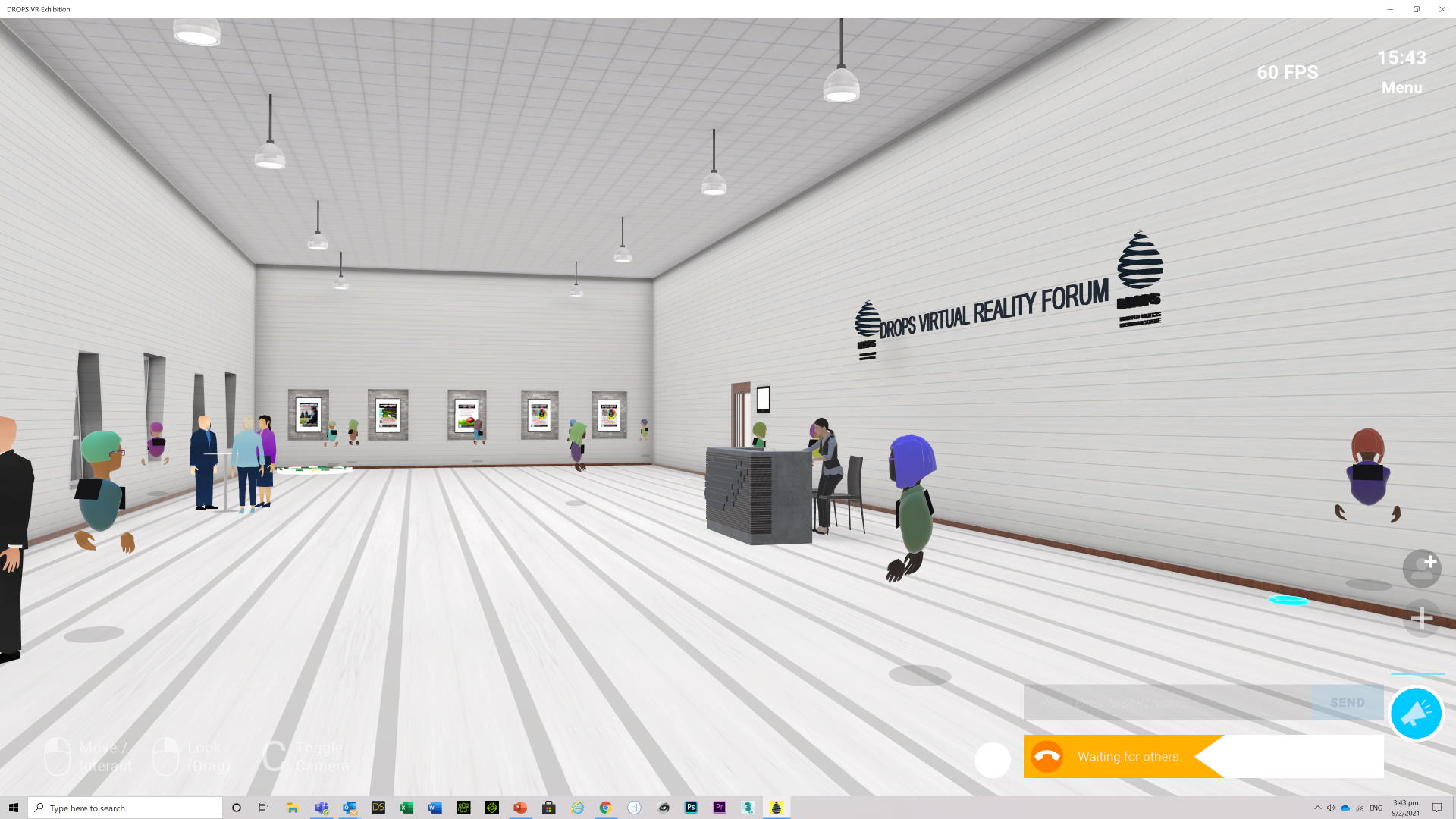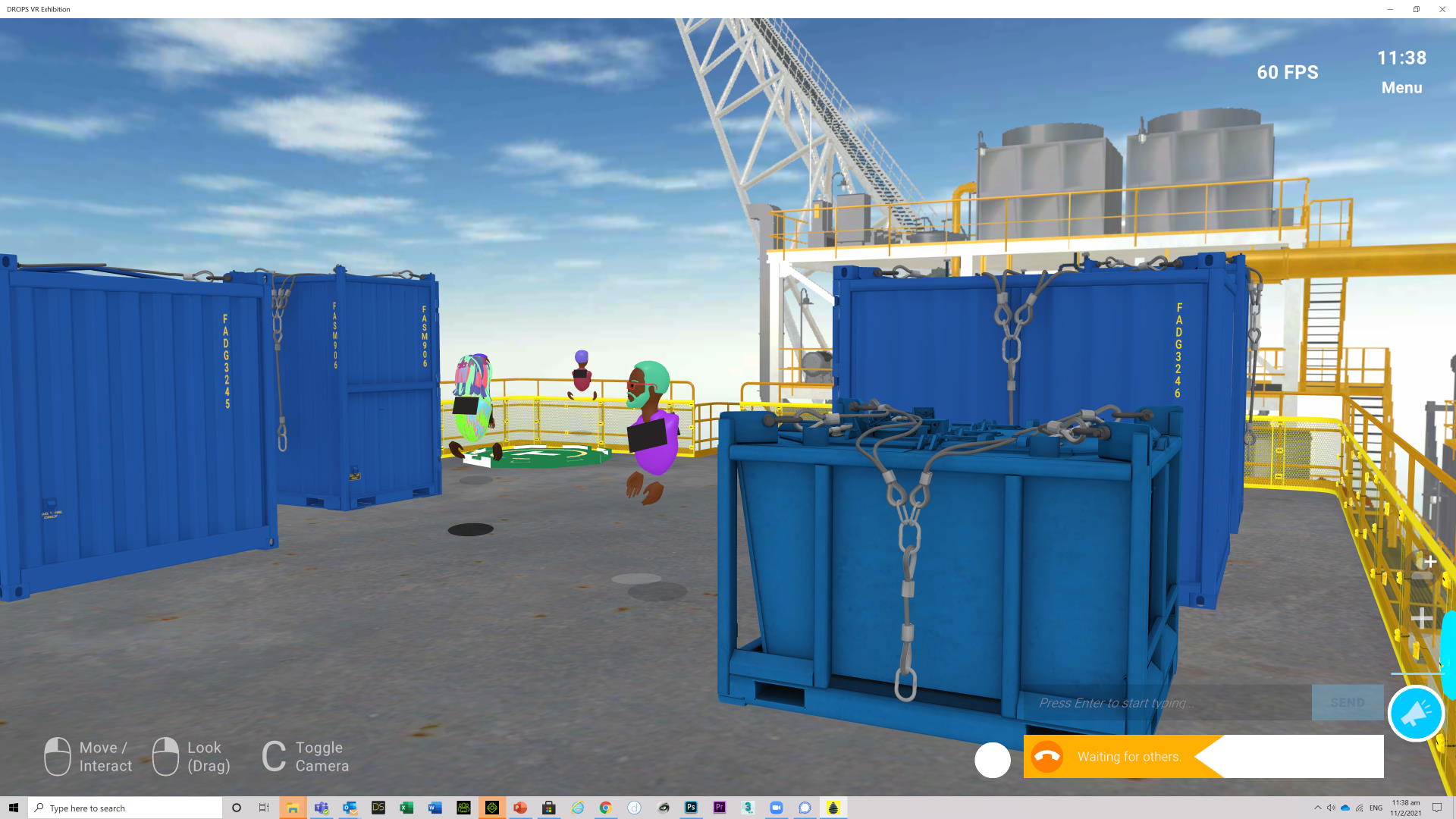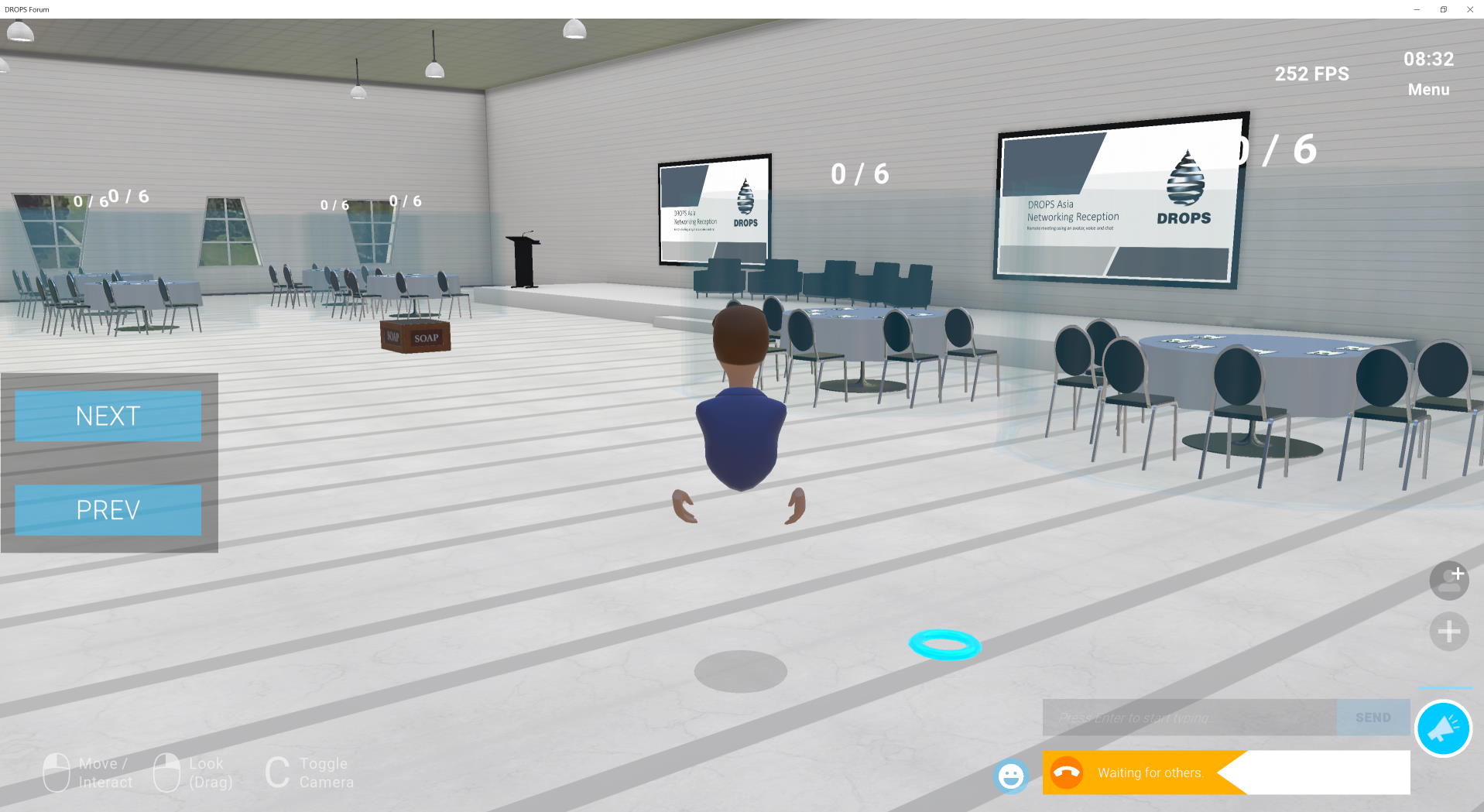Drops VR
Sponsored Article by Joachim

This article examines how a global workgroup of different companies called the Dropped Object Prevention Scheme (DROPS) works together to greatly reduce the risk of falling objects. It explores how the Asia Chapter of this workgroup leverages Virtual Reality technology to remotely collaborate and inspire a new generation entering the workforce.
When working at height we consider the risks of falls and falling or dropped objects. Falls tend to have disastrous results most of the time but are easily preventable when companies are committed to doing so. Dropped objects tend to happen much more frequently but a much smaller portion is the cause of a fatality or serious injury. If no one is underneath while the object falls harmlessly to the ground, we are considered lucky. On occasion, a dropped object will do significant harm and it is often treated as some freak accident. But people on the ground, in the line of fire, know that many unreported similar incidents preceded it. The problem is much more complex and requires a significant commitment from the leaders in the company to address.
Within some industries, dropped objects are especially common. In the oil and gas drilling industry, a combination of working at heights in a small area with a large crew on a steel structure, corrosion caused by seawater, and vibration from machinery increase the chance of dropped objects occurring and personnel getting harmed. Over 20 years ago, the sentiment that dropped objects were an acceptable and unavoidable risk changed into a realization that these incidents could and should be eliminated. A workgroup of energy majors and service partners called the dropped object prevention scheme (DROPS) was formed in the UK to tackle the problem. The Asia chapter of this workgroup was formed in 2009.
We raised the understanding and reliability of how we secure things at height and developed several secondary securing mechanisms in case the primary methods fail due to the causes mentioned above. Reliably Securing has become a handbook in the prevention of dropped objects in the oil and gas industry, has been translated into various languages, and has also been adopted to the wind energy sector.

Rather than considering ourselves lucky when no one got hurt, we started treating every single dropped object seriously and made it mandatory to record and investigate them. One of the tools to determine the potential severity of dropped objects is the Drops Calculator which can tell us what could have happened if someone were standing right underneath the falling object.
We started improving the housekeeping and conducting regular hazard hunts to eliminate unnecessary items at a height that has the potential to cause dropped objects.
We placed a systematic approach of internal and external inspection programs including usage picture books which were eventually digitized and are now executed mostly using industrial tablets. Inspection of cargo throughout the supply became mandatory to prevent dropped objects during lifting operations.
To prevent tools from dropping (which accounted for roughly 15% of all incidents), we devised an engineered solution that incorporates ergonomic attachment points on all tools for lanyards and assured individual components such as ratchet sockets and hammerheads do not become dropped objects. Tying off a tool with a piece of rope and sticky tape, which is unreliable, has become an unacceptable practice in this industry.

The above-mentioned practices have greatly reduced dropped objects in our industry and some companies have reported going without a single incident for several years. And while this is a great achievement, incidents still occur. Accepting that we may never fully eliminate dropped objects, we also focus on reducing the likelihood of anyone getting hurt. For further details see Recommended Guidelines for use of Restricted Access Areas (Red Zones)
Energy majors started making the above-mentioned recommended practices a mandatory contractual condition for their supply chain. They set out their expectations in the recommended practice guidance which sets out the basic requirements and minimum recommended practices for Dropped Object Prevention that can be incorporated into existing Company Safety Management Systems. They use a comprehensive checklist to regularly audit their key vendors to assure compliance and expect them to do the same with their contractors so that the entire supply chain is covered.
The collaborative work mostly took place during drops forums which were held in hotels and attended by HSE professionals across the industry. This was the case for the DROPS Asia chapter which held forums in Singapore, Malaysia, Brunei, Vietnam, China, and Australia between 2009 and 2016. Being so geographically dispersed the Asia Chapter transitioned to holding its forums on webinar platforms like Zoom and recording them for its YouTube channel. Remote collaboration and meeting have become our standard way before Covid-19 happened.
Some of the current focus areas include using digital solutions to enforce red zone policies, enhancing the quality of internal and external inspections, improve planning to reduce the frequency of lifting, and improve the awareness and competency of personnel.
When a dropped object occurs, it is usually a failure of a combination of the above-mentioned best practices. It often stems from a lack of competency or awareness with the personnel involved.
To further raise awareness for the subject of dropped objects and inspire a new generation entering the workforce, the Drops Asia chapter has set out to develop a virtual reality training and collaboration tool called Drops Forum (VR). Using a virtual reality headset, a mobile phone, or a computer, professionals enter a virtual environment using an avatar. They can meet and speak with other professionals and learn from each similar to the face-to-face meetings we originally held. It is more accessible and has a much smaller impact on our environment as no travel is required to attend the meetings.
In 3D environments like computer games, students can learn about the subjects mentioned in this article. They can do so under the guidance of a remote experienced instructor or at their own pace at any time. To try out the demo beta application, visit www.dropsvr.org
Virtual Reality has been “the next thing on the horizon” since the ’70s but finally became technically viable with the invention of the Oculus Rift in 2012. Through massive investments by Facebook and a range of other companies, the technology has rapidly evolved since then. Through the availability of cheap but high-quality hardware, its adoption globally has started to exponentially grow since 2018. Covid-19 associated lock-down also helped to increase interest. Its adoption is currently “only” in the tens of millions but combined with Augmented Reality, is expected to be the next computing platform following in the steps of the mobile phone and personal computer within a decade. All major tech companies including Amazon, Microsoft, HP, and Facebook are pouring billions in R&D for VR and AR.
Those investments are not just to capture a slice of a gaming market that triggered the development of the original Oculus Rift, many applications have been developed to serve the needs of Businesses and the DROPS Forum VR is one of them. Training applications in Virtual Reality have the potential to be much more engaging and effective than classroom or e-learning solutions.
About DROPS
The Drops Asia Chapter is an industry workgroup between energy companies, drilling contractors, and major service partners to raise awareness for- and promote best practices to prevent harm to personnel caused by dropping objects.
